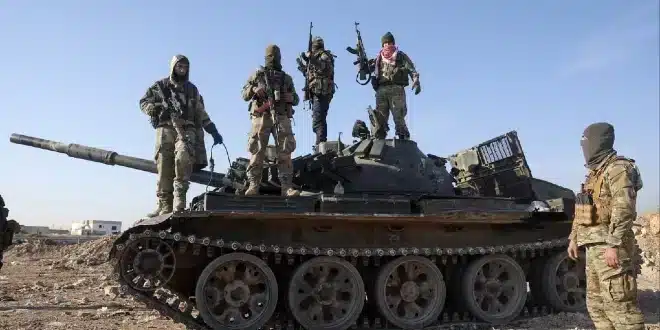Syria announced on Wednesday that its counteroffensive has successfully pushed back insurgents attempting to advance towards the strategic city of Hama. However, the insurgency claims to have captured more Syrian soldiers and Iran-backed militants during intense battles.
This recent escalation in Syria’s ongoing civil war follows the insurgents’ recent gains, which included capturing significant areas in Aleppo, the largest city in Syria, as well as towns and villages in the southern part of Idlib province in the northwest.
The conflict between Syrian President Bashar Assad’s government forces, supported by foreign allies, and the opposition seeking to overthrow him has claimed around half a million lives over the past 13 years.
Syrian state media, SANA, reported that insurgents had retreated about 20 kilometers (12 miles) from Hama, Syria’s fourth-largest city, as government forces, aided by Russian airstrikes, fortified their positions on the city’s outskirts. Heavy fighting has been ongoing, with Damascus fearing a repeat of the insurgents’ recent success in Aleppo.
The insurgency, through its Military Operations Department on Telegram, claimed to have captured five Iran-backed militants, including two from Afghanistan, and three Syrian soldiers from the 25th Special Mission Forces in eastern Hama. These claims could not be independently verified.
Should the insurgents capture Hama and control the surrounding province, it could isolate Syria’s coastal cities, Tartous and Lattakia, from the rest of the country. Lattakia is particularly significant as a political stronghold for Assad’s Alawite community and as the location of a critical Russian naval base.
The fighting, which began last week, has displaced tens of thousands, according to U.N. Special Envoy for Syria, Geir Pedersen. He warned that without de-escalation and a serious political process involving all parties and key international stakeholders, the situation could worsen, leading to greater division and destruction in Syria.
The insurgency is primarily led by Hayat Tahrir al-Sham, a jihadist group, along with the Syrian National Army, an umbrella group of Turkish-backed militias. Both groups have been entrenched in northwest Idlib and parts of northern Aleppo for years, as the country has struggled with political and military deadlocks.
Turkey, along with these insurgent groups, believes that a political solution involving reconciliation between Assad and the opposition is necessary to end the conflict. Turkey has sought to normalize relations with Syria to address security concerns related to Kurdish militants along its southern border and facilitate the return of over 3 million Syrian refugees. However, Assad has insisted that Turkey’s military withdrawal from northern Syria must be a condition for normalization.
Damascus considers the insurgents terrorists and has vowed to crush the opposition. Earlier this week, Turkish and Iranian officials met to discuss ways to deescalate the violence. Meanwhile, Arab countries that once supported groups opposing Assad have expressed concern over the conflict’s regional impact and have now aligned with the Syrian president.


